German firm Superseven GmbH from the town of Wentorf near Hamburg, won the KfW Entrepreneurs’ Award 2018 in the ”people’s choice“ category for packaging made out of biodegradable material. While the world is being littered with plastics and microplastics that do not decompose, the start-up is offering an environmentally-friendly alternative. And the interest in it is tremendous.
Sustainable idea
How Superseven wants to reduce plastic waste with an organic film (KfW Bankengruppe/n-tv). This video is available in German only.
At first glance, the clear film that Sven Seevers holds in his hand does not look any different from the packaging typically seen in supermarkets. It feels just like any other transparent bag or protective film for fruit and vegetables. And yet there is a fundamental difference. Seevers’ film does not contain any petroleum or any artificial material at all. It is not plastic. It is made of natural renewable raw materials, mostly cellulose, so wood. After its use, it can decompose without a trace. Depending on the mix of materials, it can even decay within several weeks in a normal garden compost pile.
Packaging film made from wood? It sounds like a modern, innovative product. But nothing could be further from the truth. “This technique has existed since 1908,” explains Seevers. Even before chemists discovered all the things they can do with petroleum, the process behind this film was the first method for producing transparent material. It is still present today in the term “celluloid”. But the organic material almost completely disappeared from the market with the rise of petroleum-based plastics. “We are really the only company in Germany that knows how to process and use these films,” says the 49-year-old, who spent a long time searching for partners to produce the organic material.
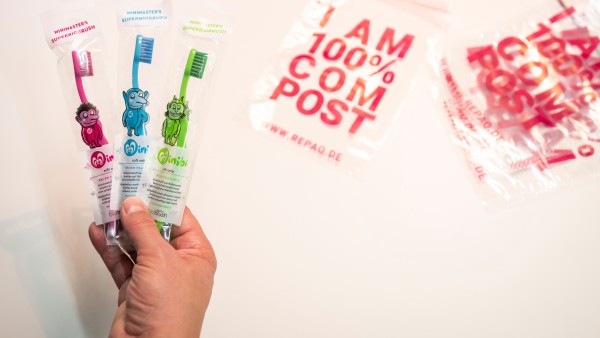
Rising demand
From biodegradable toothbrushes to organic vegetables: many manufacturers consider organic packaging for their products important too.
Superseven, the new company from Wentorf, near Hamburg, has been developing packaging on this basis under the brand name Repaq. Superseven was founded by husband and wife Katja and Sven Seevers, and Hannes Füting from Berlin. All three are industrial designers and have known each other since they studied together in Coburg. The three business founders spent many years working in different positions, designing and developing products and packaging. Until Sven Seevers had enough. “At one point I had to develop packaging for my previous employer. It was a real waste and ultimately resulted in half a kilogram of hazardous waste per package with materials that can never be separated,” says Seevers. “That was when I swore to myself that I would never do something like that again.”
But it still took a while before Superseven was officially founded in early 2017. The preparatory stage lasted several years, during which the business founders learned a lot about the complicated structure of the packaging industry, the power of entrenched mechanisms and the sluggishness of potential customers. “Never change a running system.” This motto that every IT user lives by also exists in the packaging industry. That prompted Superseven to negotiate with the right partners from the start: with innovative manufacturers who have high standards for environmental responsibility and sustainability. New companies were among them, but so were well-established industrial conglomerates.
About the team
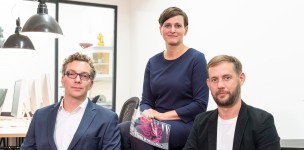
Husband and wife team Katja (centre) and Sven Seevers (left) founded Superseven together with Hannes Füting (right) from Berlin – the three industrial designers have known each other since they were students.
After one and a half years, everything is going according to plan for the start-up. “We have achieved all the milestones in our business plan,” says business founder Seevers. The patent for a new method of sealing the foil particularly tightly was of primary importance and has since been granted. That protects the business model, at least to some extent. But Superseven also safeguards itself from possible competitors with its complex body of specialist knowledge, which is necessary for packaging development – from material properties and integration into manufacturing processes to compliance with the wide variety of legal provisions.
Among the first products to be offered in Repaq film: a toothbrush just as biodegradable as the packaging. It is sold as part of the normal range at Budnikowsky, a Hamburg-based pharmacy chain. “It was important to the manufacturer that the packaging was also environmentally friendly,” says Seevers. That includes more than just the film. It also involves the use of environmentally friendly dyes for printing. Vendors for Demeter, an organic farming association in Germany, already package their vegetables in the organic film.
KfW Award Gründen
KfW Entrepreneurs’ Award 2018: In October 2018, the KfW Entrepreneurs’ Award (previously known as “StartUp Champions”) was presented to the 16 state winners and one national winner in recognition of their business ideas.
Learn moreWhen compared with conventional plastic products, Repaq is more expensive due to the raw materials alone. The cellulose comes from residual wood from sustainable forestry and costs about three times as much as mineral oil. By the end of processing, the price of a Repaq package is between 30 and 100 per cent more than the plastic competition. “For many products, that doesn’t play a significant role. For some large-scale producers, it does, of course. They keep an eye on every cent,” Seevers learned. There are also limits to its applications. It still cannot be used to package heavy items.
Nevertheless, Superseven cannot complain of a lack of interest. All films in the Repaq range are completely biodegradable, meaning they come from nature and are destined to return to it. No other conventional technology can implement this principle of an ecologically sound cradle-to-cradle cycle in a comparable way. Simple film packaging can be disposed of in the garden compost. Other types require professional composting at higher temperatures.
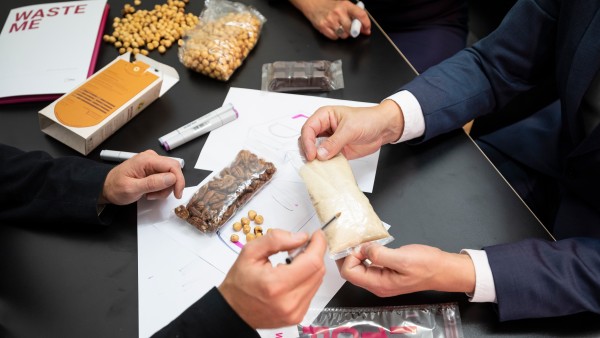
Wood instead of plastic
Superseven mostly uses cellulose obtained from wood for its packaging. After use, it decomposes within a few weeks depending on the mixture of materials.
This year, Superseven exhibited at two industry trade fairs in Nuremberg and Copenhagen. “In Nuremberg we didn’t even have two minutes to catch our breath,” reports Seevers. In Copenhagen, the business founders were astonished when an official government delegation from India suddenly appeared at the stand and was very interested in the Repaq products.
Despite keen interest from all over the world, the start-up is currently focusing on the European market. And that is exciting enough. Every day, interested parties contact them for information and quotations. To handle this demand, the company is currently hiring its first full-time employees. Superseven has gained serious momentum, spurred on by discussions about marine pollution, waterborne microplastics and the forthcoming new EU directive on plastic waste. The KfW Entrepreneurs’ Award is giving the company further impetus: Superseven was the state winner for Lower Saxony and won in the “people’s choice” category, which is decided at the event in Berlin.
Get the oceans clean!
In mid-October 2018, KfW Group launched the Clean Oceans Initiative together with the European Investment Bank (EIB) and the French Agence Française de Developpement (AFD). The partners have committed an initial amount of EUR 2 billion for reducing plastic pollution of the oceans.
Learn more“We assess each offer and are currently aiming for more moderate growth,” says Seevers. But it is foreseeable that they may get to the break-even point in 2019. So Katja and Sven Seevers have now defined the next milestone in the start-up’s development: they are eager to have their living room back. To date, Superseven has actually been housed in their private flat. But they soon plan to move the desks and workbenches into a real office space.
The described project contributes to the following United Nationsʼ Sustainable Development Goals
Goal 9: Build resilient infrastructure, promote sustainable industrialization and foster innovation
Non-existent or dilapidated infrastructure hinders economic efficiency and thus engenders poverty. When building infrastructure, the focus should be on sustainability, for example, by promoting environmentally-friendly means of transport. Factories and industrial facilities should also ensure that production is in line with ecological aspects to avoid unnecessary environmental pollution.

All United Nations member states adopted the 2030 Agenda in 2015. At its heart is a list of 17 goals for sustainable development, known as the Sustainable Development Goals (SDGs). Our world should become a place where people are able to live in peace with each other in ways that are ecologically compatible, socially just, and economically effective.
Published on KfW Stories: 1 November 2018.

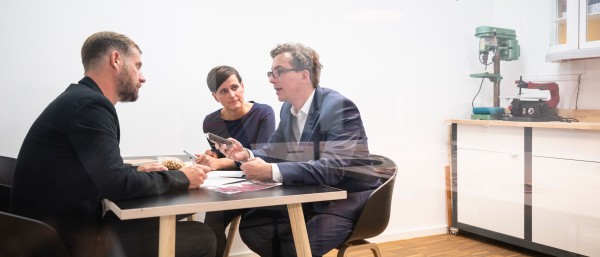
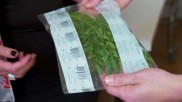
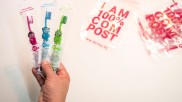
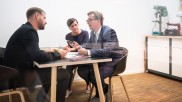
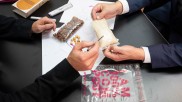
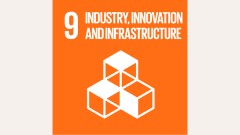
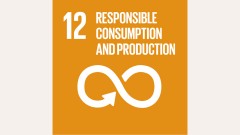
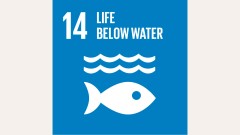
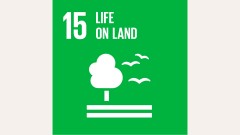
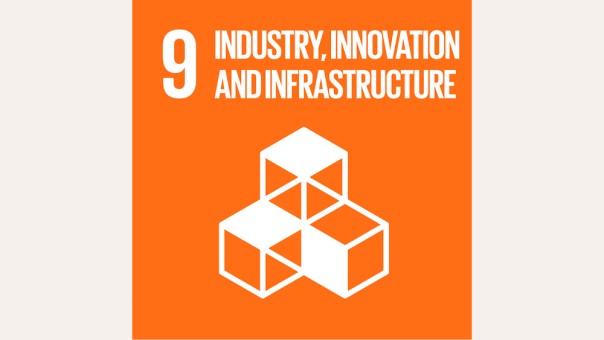
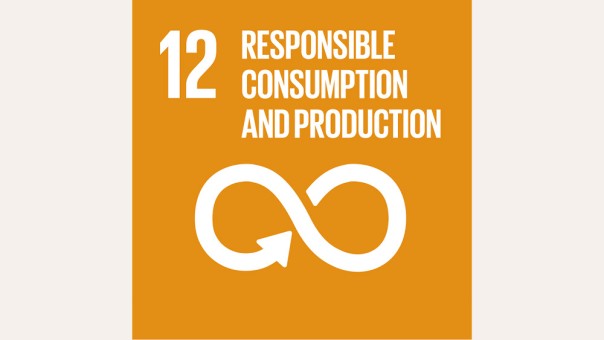
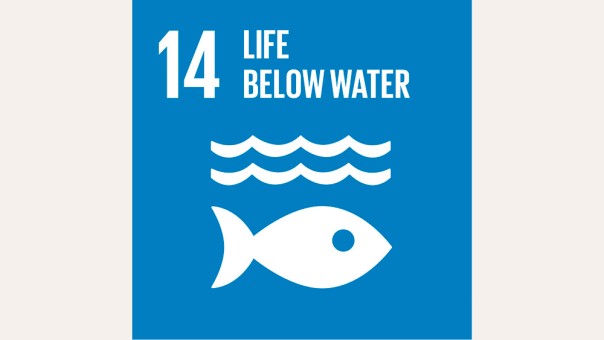
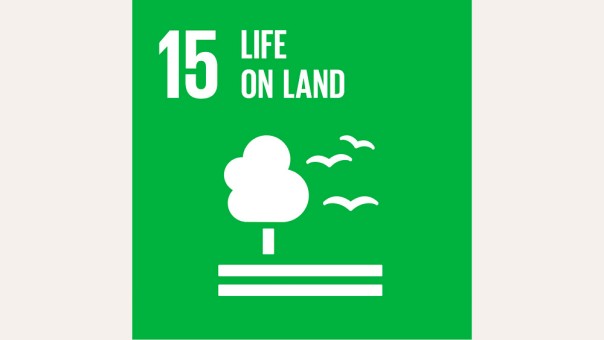
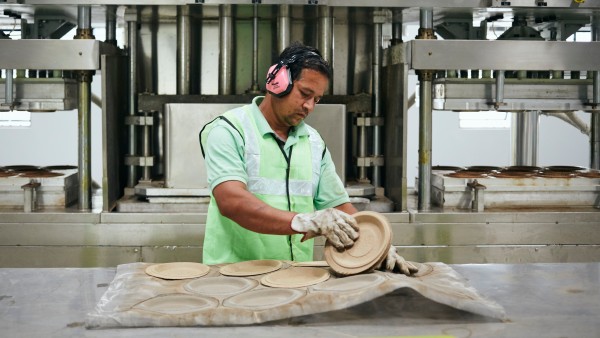
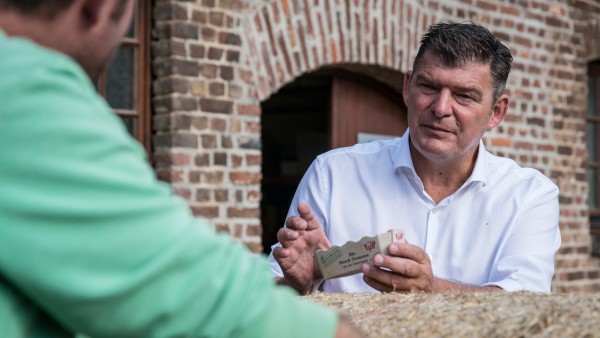
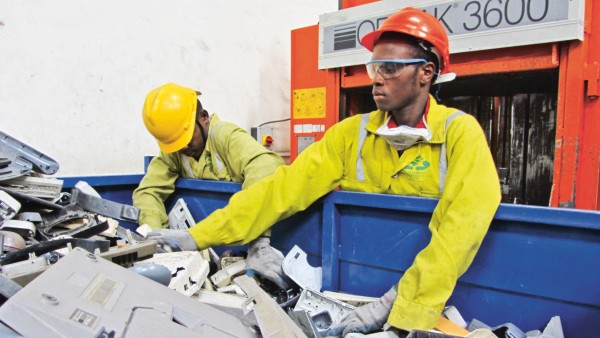
Data protection principles
If you click on one of the following icons, your data will be sent to the corresponding social network.
Privacy information